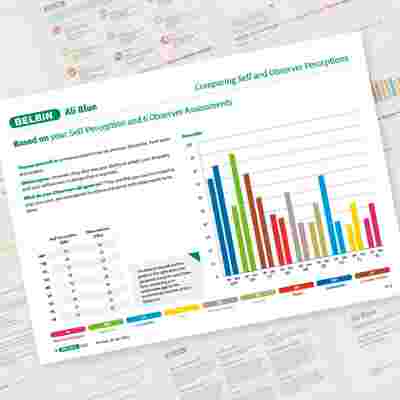Summary
- Self-reporting tests can feel comfortable but often distort reality, reinforcing bias rather than revealing new understanding.
- When people only describe themselves, teams risk becoming echo chambers that shut out external perspectives.
- Measuring observable behaviour — especially through feedback from others — produces richer, more accurate results.
- Always ask key questions before choosing a test: Why are we testing? What does it measure? What’s the evidence base?
- Real growth comes from combining self-perception with others’ observations to uncover how people truly contribute to their teams.



